Trump’s Shocking Power Grab: Federalizing DC Police and 800 National Guard Troops Sparks Outrage
Trump’s Call for DC Police and National Guard Deployment: Political Analysis and Implications
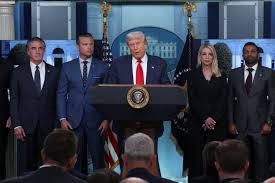
Former President Donald Trump’s recent calls for deploying Washington DC police and National Guard troops to “secure the nation’s capital” have ignited a fierce political debate, raising questions about executive authority, urban policing, and the upcoming election cycle. In this comprehensive analysis, Newsiomix examines the context, legal implications, and potential consequences of these controversial proposals.
The Proposal: What Trump Has Suggested
During a campaign rally in Pennsylvania on August 11 and subsequent media appearances, Trump outlined a multi-point security plan for Washington DC:
Key Elements of Trump’s Security Proposal
- Immediate deployment of National Guard units to “high-crime areas” of Washington DC
- Federal support for DC police department operations and personnel
- New patrols around federal buildings and national monuments
- Enhanced authority for law enforcement to “clear homeless encampments”
- Special task force to combat organized retail theft
- Federal funding tied to cooperation with these measures
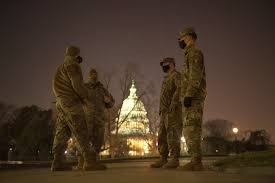
“Our nation’s capital has become a disgrace – crime is out of control, our monuments are disrespected, and federal workers don’t feel safe. As President, I will authorize immediate National Guard deployment and give police the support they need to clean up this city.”
– Donald Trump, August 11, 2025 rally speech
Political Context and Timing
Trump’s proposals come at a sensitive political moment:
| Factor | Details | Political Significance |
|---|---|---|
| 2025 Crime Statistics | DC violent crime up 18% year-over-year | Provides justification for “tough on crime” messaging |
| 2026 Midterms | Key Senate and House races approaching | Law and order as central campaign theme |
| 2028 Presidential Race | Trump leads GOP primary polls | Positioning as decisive leader on security issues |
| DC Statehood Debate | Ongoing congressional discussions | Highlights federal oversight of district |
Historical Precedents
Trump’s proposals echo several historical moments in DC governance:
- 1968: Massive National Guard deployment after MLK assassination riots
- 1991: Operation Desert Storm security enhancements
- 2001: Post-9/11 military presence in the capital
- 2020: Controversial June deployment during racial justice protests
However, experts note that sustained domestic military deployment for routine law enforcement would represent a significant departure from most previous usage.
Legal and Constitutional Considerations
Authority for Deployment
The legal framework governing military deployment in Washington DC involves complex overlapping authorities:
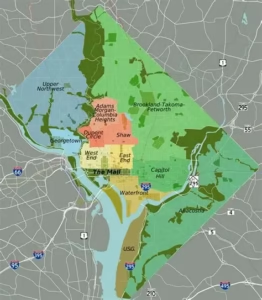
Posse Comitatus Act (1878): Generally prohibits use of federal military personnel for domestic law enforcement, but contains exceptions including:
- Express constitutional or statutory authorization
- Insurrection Act invocation (last used 1992 for LA riots)
- DC-specific provisions in District of Columbia Code
DC Home Rule Act (1973): Grants local government control over many municipal functions, but reserves certain powers to federal government including:
- Control of National Guard (though typically through mayor’s request)
- Security of federal properties
- Budgetary oversight
“The legal path for sustained National Guard deployment in DC without local consent is questionable at best. While the President has unique authority over the district, the courts would likely scrutinize any unilateral action that overrides local governance.”
– Professor Sarah Miller, Constitutional Law Scholar at Georgetown University
Political Reactions
Democratic Response
“This is authoritarian rhetoric meant to scare voters. DC has home rule, and its elected leaders should determine public safety strategies.”
– Rep. Eleanor Holmes Norton (D-DC)
Republican Support
“The federal government has both a right and responsibility to protect its capital city when local authorities fail to maintain order.”
– Sen. Tom Cotton (R-AR)
DC Local Government
“We welcome federal partnership but reject any imposition of military forces against the will of DC residents and their elected officials.”
– DC Mayor Muriel Bowser
Civil Rights Groups
“Militarizing police responses disproportionately impacts communities of color and undermines trust in law enforcement.”
– ACLU National Security Project
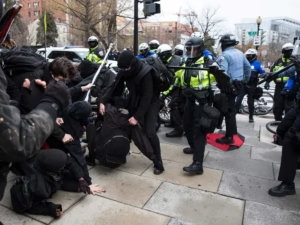
Potential Impacts and Consequences
Security Outcomes
Experts are divided on the likely effectiveness of Trump’s proposed measures:
- Pro: Could provide short-term crime reduction in targeted areas
- Con: May damage police-community relations long-term
- Pro: Additional resources for overstretched DC police
- Con: Military personnel lack training for urban policing
Political Ramifications
The proposals could significantly impact the political landscape:
- Mobilizes Trump’s base with strong law-and-order message
- Provides contrast with Democratic approaches to urban governance
- Raises questions about federal overreach into local affairs
- Could influence suburban voter perceptions ahead of midterms
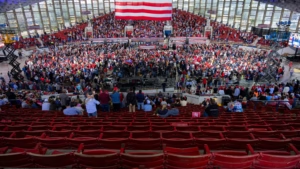
Comparative Analysis: Other Cities
Trump suggested his DC plan could serve as a model for other cities. How does DC compare?
| City | Violent Crime Rate | Police per Capita | Recent National Guard Use |
|---|---|---|---|
| Washington DC | 1,027 per 100k | 5.9 officers per 1k | 2020 protests |
| Chicago | 1,129 per 100k | 4.4 officers per 1k | COVID support 2020-21 |
| New York | 572 per 100k | 4.2 officers per 1k | Subway patrols 2024 |
| Los Angeles | 749 per 100k | 2.5 officers per 1k | 1992 riots |
Conclusion: A Nation Watching Its Capital
Trump’s proposals have thrust Washington DC’s unique governance status into the national spotlight, raising fundamental questions about:
- The appropriate balance between federal and local authority
- The role of military forces in domestic policing
- How urban security issues factor into national politics
- The future of DC statehood efforts
As the 2026 election cycle begins, these discussions will likely intensify, with Washington DC serving both as a literal city and a symbolic battleground in America’s ongoing debates about security, governance, and democracy itself.
Sources and Additional Reading:
- CNN Original Analysis – https://edition.cnn.com/2025/08/12/politics/trump-washington-dc-police-national-guard-analysis
- DC Crime Statistics – https://mpdc.dc.gov/page/crime-statistics
- Posse Comitatus Act Overview – https://www.law.cornell.edu/uscode/text/18/1385
- DC Home Rule Act – https://dccouncil.gov/home-rule/
- National Guard Bureau – https://www.nationalguard.mil
- ACLU Position on Militarized Police – https://www.aclu.org/issues/criminal-law-reform/reforming-police/policing-and-militarization
- Urban Institute Analysis – https://www.urban.org
by abo zain
newsiomix
Share this content:





